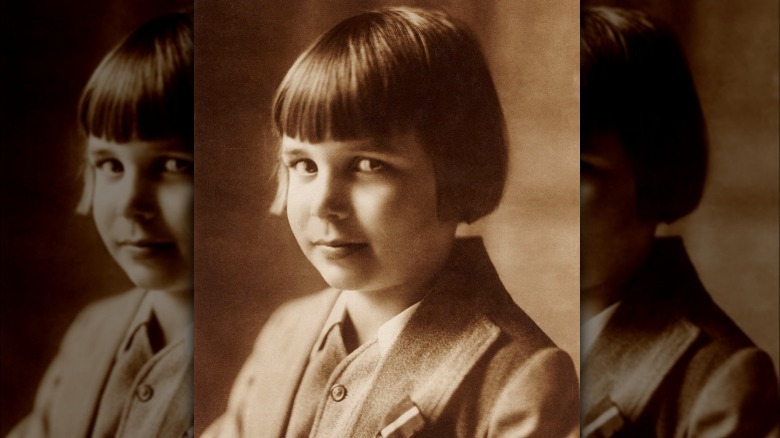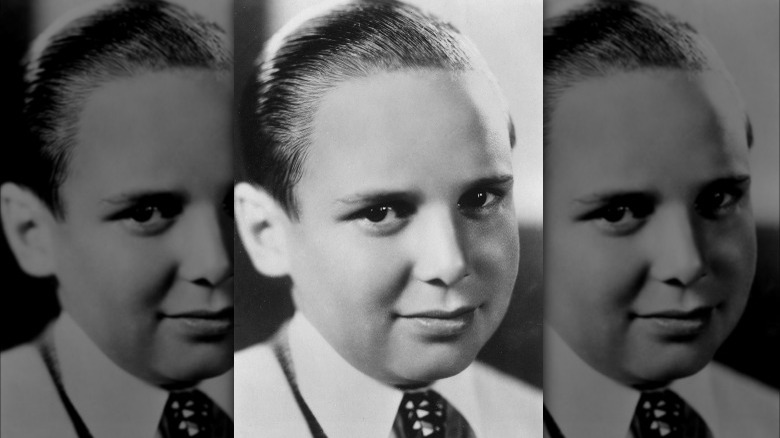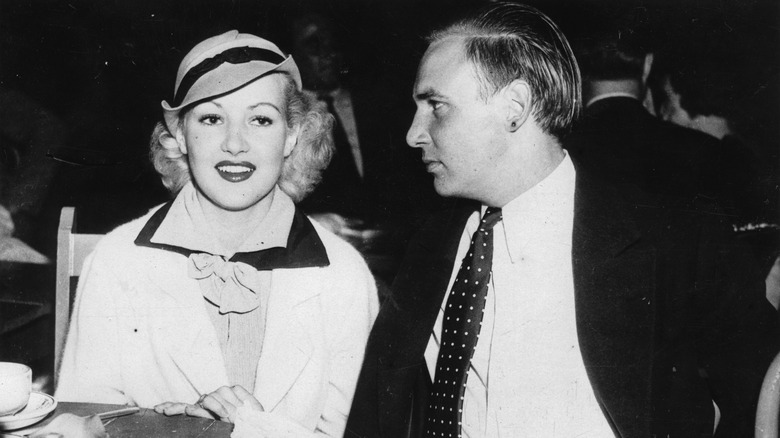Inside The Hollywood Law That Protects Child Actors
Child actors and other performers have a long history of experiencing legal and financial difficulties related to the money they earn as minors. A discussed in the 1999 article "The Price of Celebrity: When a Child's Star Studded Career Amounts to Nothing" from the DePaul Journal of Art, Technology & Intellectual Property Law, as minors, American children don't have access to any money that they earn, making it the property of their parents or legal guardians. This has historically led to some children becoming the breadwinners of their families, and some parents then use their child's earnings to fund extravagant lifestyles. Per People magazine, several former child performers, including Macaulay Culkin, Gary Coleman, Leighton Meester, and LeAnn Rimes have sued their parents for misappropriating the funds they earned as minors.
This is an issue that has been around for as long as there have been child actors. One of the fundamental laws that applies to child performers, created to shelter a portion of their earnings for distribution to them once they reach adulthood, came about thanks to the activism and legal work of an actor who made his cinematic debut in 1918. He was just 18 months old.
Was Jackie Coogan the first child star?
John Leslie Coogan, better known as Jackie Coogan, was born to a vaudevillian performer father and an actress mother on October 26, 1914, in Los Angeles, California, per Britannica. He made his motion picture debut in the 1916 film "Skinner's Baby" and went on to join his parents onstage. When Coogan was 6 years old, actor and director Charlie Chaplin noticed him in a stage act and cast him in the movie "The Kid," which made Coogan an international movie star. Roles in many films followed, and by 1923-1924, he was making $22,000 a year and earning 60% of the profits of his movies. Per The Vintage News, he starred in 19 silent films by the time he was 18 years old and his image was used for countless items of merchandise.
In 1935, Coogan was in a car accident that killed his father, fellow child actor Junior Curkin, and two other people, leaving him the sole survivor of the crash. Three years later, he learned that his mother and his stepfather, who had also been his business manager, had spent almost all of his earnings, leaving him with very little money, despite an entire lifetime of professional work.
'Every dollar a kid earns before he is 21 belongs to his parents'
When Jackie Coogan reached adulthood and realized that his parents had spent nearly all of the money he'd made as a child actor, he took legal action, per The Vintage News. Charlie Chaplin, who'd made Coogan a star by casting him in "The Kid," now offered Coogan financial support. Coogan's mother, on the other hand, saw nothing wrong with having spent much of her son's $4 million earnings on expensive cars, jewelry, and other luxuries, reportedly retorting, "No promises were ever made to give Jackie anything. Every dollar a kid earns before he is 21 belongs to his parents."
Coogan sued his mother and stepfather in 1938, bringing legal and public attention to the issue of parents and legal guardians running through the money earned by their underage children, leaving nothing for the children upon reaching legal age, which at the time was 21 according to United States law. One year later, legislation passed in the state of California for the California Child Actor's Bill.
The Coogan Act didn't do a lot for Jackie Coogan himself
The California Child Actor's Bill, per The Vintage News, states that any "money that is earned and accumulated under a contract of the code remains the sole legal property of the minor child." It requires the child's employer to set aside 15% of the child's earnings into a trust. The bill is still often referred to as the Coogan Act or Coogan Bill, and the trusts are sometimes called Coogan Trusts. Unfortunately for Jackie Coogan himself, California law in place during his time as a child actor meant his earnings belonged to his family as a whole. He ultimately received just $126,000 of the $4 million he earned.
Coogan was married to actress Betty Grable (shown above) from 1937 until 1939, and then went on to serve in the Army during World War II, according to Turner Classic Movies. He returned to the silver screen in 1947 with "Kilroy Was Here" and went on to have a long and varied career in television, most famously playing the role of Uncle Fester on "The Addams Family" from 1964 until 1966. By the time he died in 1984, it's estimated that he'd appeared in a total of 1,400 television episodes.
The Coogan Act still helps protect child performers' earnings
According to SAG-AFTRA, today it's necessary within California, New York, Illinois, Louisiana, and New Mexico to open a Coogan Account for a child performer in order to receive a work permit allowing the child's employment. This provides an incentive for a parent to put the Coogan Account in place; their child's ability to work hinges upon the account. The minor's parent must supply the Coogan Account number and 15% of the minor actor's gross wages must be deposited into the account within 15 days of employment. The original loopholes of the California Child Actor's Bill weren't closed until January 1, 2000, at which point California law explicitly noted that minors' earnings do indeed belong to the minor, not their parents. Since minors still can't legally control their own money, the laws in California govern the earnings and create a fiduciary relationship between parents and children.
Wrapbook created a guide for producers concerning the Coogan Law that notes it doesn't exist outside of the five aforementioned states. This means the protections aren't extended to child actors and other performers working outside of these states, which is more and more common as other states offer incentivizing tax breaks to production companies in exchange for filming movies and television shows there.
A Coogan Act for child influencers?
In 2019, The Hollywood Reporter discussed the possibility of creating a new type of Coogan Law that would legislate the handling of earnings of minor children who make money via social media, particularly YouTube. The article noted that in 2018, 7-year-old Ryan Kaji had made an estimated $22 million from his YouTube channel RyanToysReview, featuring videos of Ryan unboxing and reviewing toys. (As of 2022, the channel is called Ryan's World and has 32.1 million subscribers.) The article notes that while Ryan's parents have been outspoken about making sure to put their son's earnings aside for him to access as an adult, there are no laws that protect money earned by minor YouTube stars and other so-called influencers, making them vulnerable to financial exploitation from parents and other adults.
In 2018, California lawmakers attempted to add "social media advertising" to the definition of employment under child labor laws. The version that was signed into law was diluted from its original intent and actually exempts children from needing a work permit for any performance that is unpaid and under one hour. The lack of necessary work permit means parents have no legal obligation to open a Coogan account to protect a portion of their child's earnings. However, some individuals are making their own rules regarding working with kids. Manager Byron Austen Ashley of Settebello Entertainment told the reporter, "I made a policy at my company that we only work with children if they're entirely protected by Coogan accounts."





